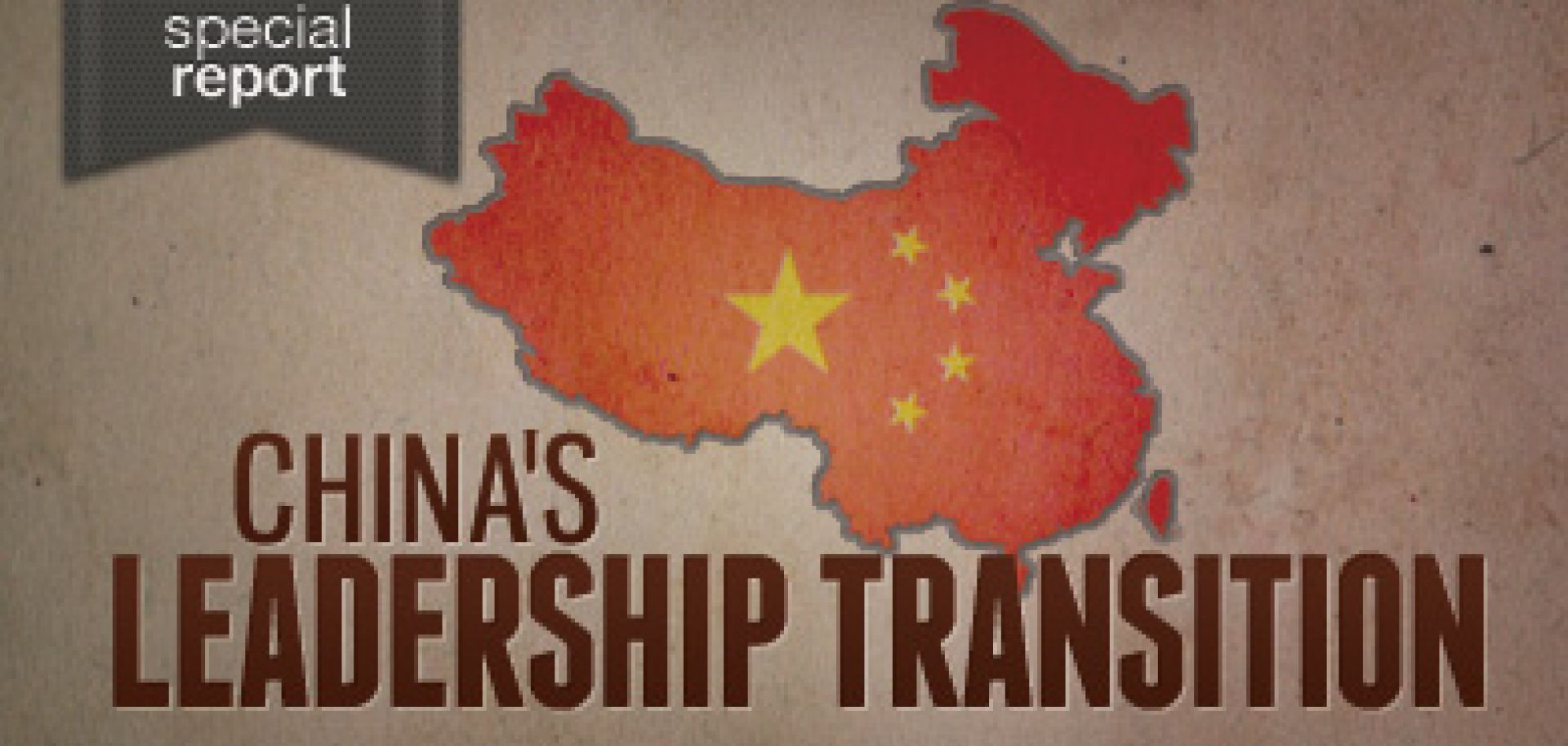ASSESSMENTS
China's Leadership Transition: Challenges for the New Leaders
Nov 5, 2012 | 11:45 GMT

Stratfor
Summary
Editor's Note: This is the second installment of a four-part series on China's political future. Click to read part one.
Chinese President Hu Jintao and Prime Minister Wen Jiabao, the core of China's Fourth Generation of leaders, will transfer control of the Communist Party of China on Nov. 8 to Xi Jinping, Li Keqiang and five other members of the incoming Fifth Generation. The China that they will hand over is in some ways different from but in many ways remarkably similar to the one they inherited, in part because many of the Hu-Wen administration's core mandates remain unfulfilled.
The gaps between rich and poor, town and countryside and, in many cases, between coast and interior are starker than ever before and still growing. Domestic consumption is rising but not fast enough to offset the rapid — and probably terminal — decline in external demand that set in after successive financial crises rocked U.S. and European consumers. Worse for Beijing, the proxy economy it created through two years of intensive, state-led investment is now crumbling under its own weight, dogged by overcapacity, waste and trenchant corruption at almost every level of governance. Despite Wen's persistent calls for "reform," the traditional means of political and economic control in China have not kept pace with social change. Internationally, a more confident and assertive military, along with China's ballooning appetite for foreign natural resources, is steadily undermining Beijing's long-held foreign policy of cooperation and inoffensiveness.
Subscribe Now
SubscribeAlready have an account?
